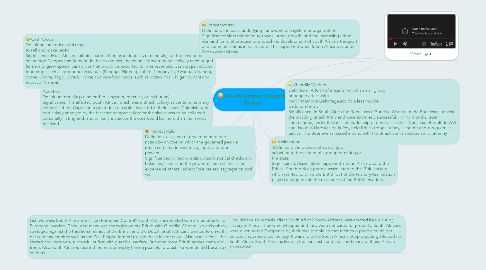South African Colonial Period
Sag Gasにより

1. Indirect Rule: Definition: a system of government of one nation by another in which the governed people retain certain administrative, legal, and other powers. Significance:Indirect rule disrupted historical checks and balances, increasing the power of some chiefs at the expense of others.Indirect Rule caused segregation and war.
2. Cash Crops: Definition: an agricultural crop to sell and make profit Significance: Most African colonies had neither large deposits of minerals, nor the environment to encourage European settlement. In these colonies, the colonial governments actively encouraged farmers to grow special cash crops that would be exported to raise revenues. Cash crops included food crops such as groundnuts/peanuts (Senegal, Nigeria), coffee (Tanganyika, Rwanda, Uganda), cocoa (Ghana, Togo, Cote D'Ivoire) and non-food crops, such as cotton (Mali, Niger, Sudan) and tobacco (Malawi).
3. Infrastructure: Definition: the basic underlying framework of a system or organization Significance:Mass migration to towns, urban growth, and the increasing urban demand for rural produce prompted the development of South Africa's transport and communications infrastructure. This happened when South Africa was under British colonial rule.
4. Abolition: Definition:formally put an end to (a system, practice, or institution). Significance:This affected South Africa , which was a British colony at the time, as many colonists at the Cape had a great deal of capital invested in their slaves. Colonists were particularly annoyed by the fact that compensation for the slaves was to be collected personally in England, and in many instances the cost would be more than the money received.
5. List two ways South Africans resisted European Control? South Africans rebelled with armed attacks to the European Invaders. They used many war strategies on the British with Guerrilla Warfare like ambushes and hit-run strategies against the traditional armies of the British and the Dutch. South Africans wanted to drive the Europeans out so many empires such as the Zulu Empire formed to take these invaders out. Also wars such as the Boer Wars started and were very successful at first with guerrilla warfare. But soon more British armies came and defeated the Boers.Also South Africans resisted the Europeans by having peaceful protest like women did because of their limit in rights
6. How did the slave trade affect South Africa? South Africans were treated badly during slavery in Africa. They were whipped and they were not cared for property. South Africans were given to the Europeans by their own people so that their own people could get Europe's advanced technology. It was more like South Africa's people getting affected not South Africa. South Africans lived in the harshest conditions and many of those African slaves died.
7. Guerrilla Warfare: Definition: A form of irregular which a small group of people attack with mobility,ambush,sabotage,etc. to a less mobile traditional army Significance: In South Africa the Boers used Guerrilla Warfare in the Boer Wars against the invading British Army and were extremely successful. For 15 months, Boer commandos, under the brilliant leadership of generals such as Christiaan Rudolf de Wet and Jacobus Hercules de la Rey, held British troops at bay, using hit-and-run guerrilla tactics. The Boer even messed around with the British communication and hit army bases.
8. Assimilation: Definition: the process of adapting or adjusting to the culture of a group or nation,or the state Significance: Assimilation happened a lot in Africa due to the British. South African people assimilated to the Zulu society which wanted to drive the British out of the territory.Assimilation played a huge role in the resistance of the British invaders.
9. Video


